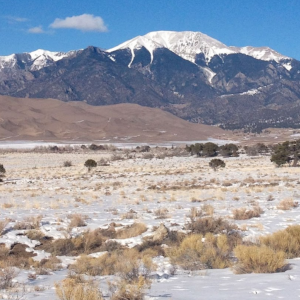When
Presenter:
Dr. Meagan Oldfather (NC CASC and USGS)
Abstract:
Biogeography entwines the studies of demography, disturbances, dispersal, and in light of changing climate – disequilibrium dynamics. All of these ecological and evolutionary processes interact to shape the stability of species current and future distributions, and – as I will focus on in this talk – may be influenced by landscape heterogeneity. Using examples from a range of systems in the Western United States, including Mediterranean oak savannas, alpine tundra, and the high elevation desert, I will discuss the ways in which topographic gradients mediate population and community dynamics of plants under changing environmental conditions. For example, microclimatic gradients drive variation in demographic rates that result in multiple pathways to demographic stability across a species current range, but also may lead to multiple pathways of vulnerability to changing climate. Finally, I will discuss work synthesizing the knowledge gaps in climate adaptation in mountain landscapes – from the difficulty of defining a refugia to the challenges of managing systems with high climate variability and biological lags.
About the speaker:
Meagan Oldfather is a Biologist at the U.S. Geological Survey and the North Central Climate Adaptation Science Center (NC CASC). She holds a PhD in Integrative Biology from University of California Berkeley and a Bachelor of Science from University of California Santa Cruz. Meagan has worked on vegetation responses to changing climate in mountains across California, the Great Basin, and the Rockies for the last decade. Through this research, she has worked with a range of groups including the Terrestrial Biodiversity Climate Change Collaborative, GLORIA Great Basin, and the Niwot Ridge Long Term Ecological Research Program.


